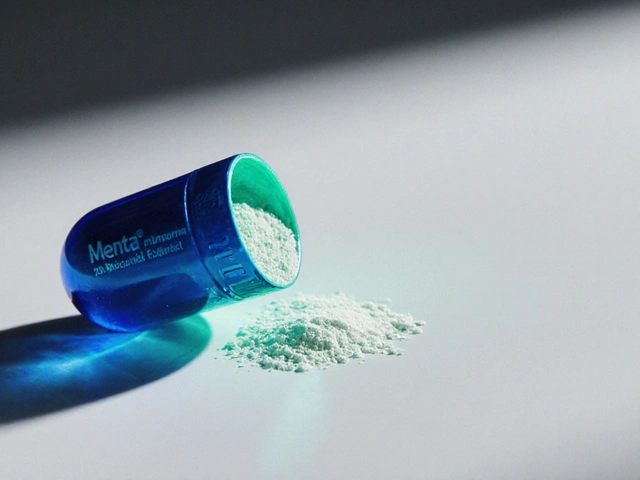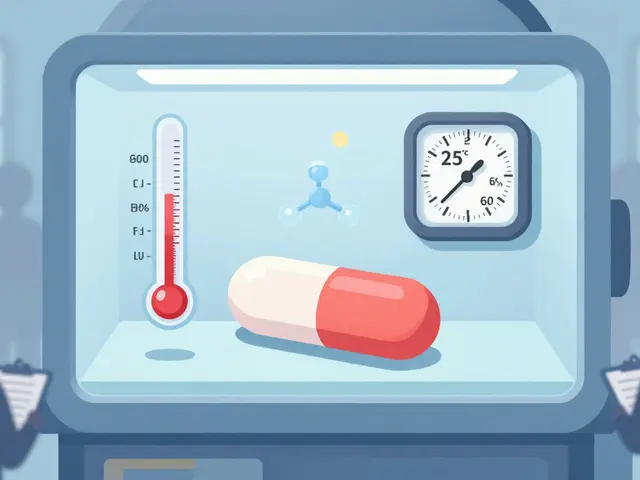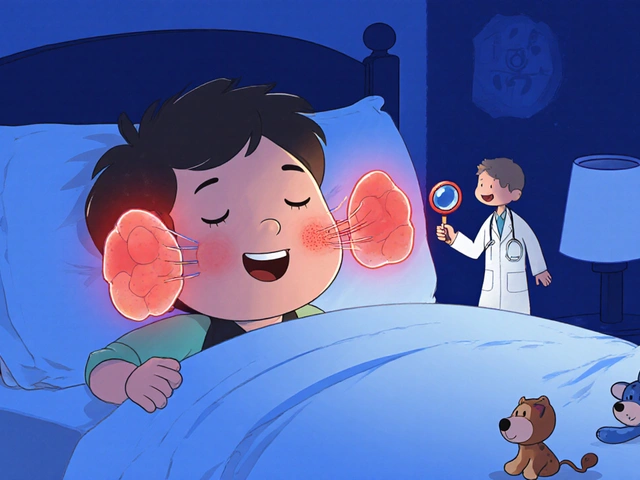Entocort Side Effects: A Straight‑Forward Guide
If you’ve been prescribed Entocort for Crohn’s disease, you’ve probably heard it’s a local steroid that works mainly in the gut. That’s true, but it can still cause side effects—some you’ll notice right away, others that develop over time. Below we break down the most frequent reactions, the rare but serious ones, and what you can do to stay safe.
Typical side effects you might feel
Most people on Entocort report mild issues that are easy to handle. The top complaints are:
- Hoarseness or sore throat – because the medication can irritate the throat as it passes through.
- Oral thrush – a yeast infection in the mouth that shows up as white patches or a cotton‑like feeling.
- Nausea, abdominal pain, or diarrhea – the gut can be a bit upset when adjusting to the drug.
- Headache – not uncommon with steroids, usually short‑lived.
- Upper‑respiratory infections – you might catch a cold more easily.
These symptoms are usually mild and disappear once your body gets used to the medication. Simple tricks often help: drink plenty of water, eat a small snack with each dose, and rinse your mouth with water after swallowing the capsule.
When to worry and what to do
While most side effects are harmless, a few signals mean you should call your doctor right away:
- Severe or persistent abdominal pain that doesn’t improve with over‑the‑counter meds.
- Unexplained weight gain, swelling, or facial rounding – signs of fluid retention from steroids.
- Signs of infection like fever, chills, or painful red spots.
- Bone‑related issues such as sudden back pain or fractures; long‑term steroid use can weaken bones.
- Growth problems in children – budesonide can slow height gain if used for a long period.
If any of these appear, your doctor may adjust the dose, add a protective medication, or switch you to a different therapy.
Regular check‑ups are key. Blood tests that look at cortisol levels, blood sugar, and bone density give a clear picture of how Entocort is affecting your body. Even if you feel fine, those labs help catch hidden problems early.
Here are a few practical tips to keep side effects to a minimum:
- Take Entocort with food – it reduces stomach irritation and improves absorption.
- Rinse your mouth thoroughly after each dose to prevent thrush.
- Maintain a balanced diet rich in calcium and vitamin D; consider a supplement if your doctor suggests.
- Avoid smoking and limit alcohol, both of which can worsen steroid‑related risks.
- Stay active – weight‑bearing exercise supports bone health while you’re on steroids.
Remember, Entocort is designed to act locally, which means it usually causes fewer systemic effects than oral prednisone. Still, individual reactions vary, and listening to your body is the best way to stay safe.
Got more questions? Write them down and bring them to your next appointment. Knowing what to expect makes it easier to manage Crohn’s disease without unnecessary worry.
Entocort: Uses, Side Effects, and Practical Tips for Managing Crohn's Disease
Entocort is often prescribed for Crohn's disease. Learn how it works, what to expect, tips for safe use, and what real patients say.
View More




